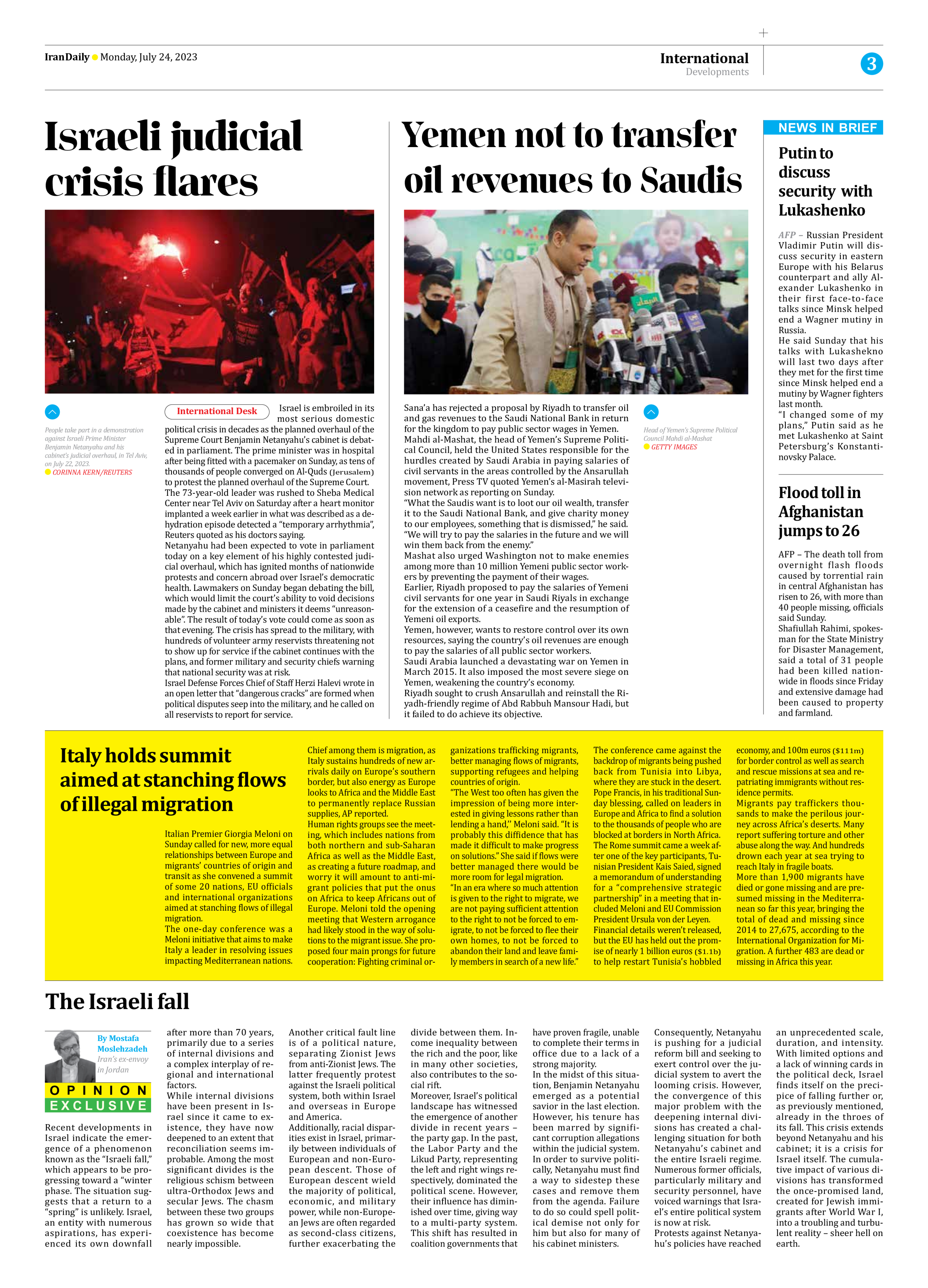
The Israeli fall
By Mostafa Moslehzadeh
Iran’s ex-envoy in Jordan
Recent developments in Israel indicate the emergence of a phenomenon known as the “Israeli fall,” which appears to be progressing toward a “winter phase. The situation suggests that a return to a “spring” is unlikely. Israel, an entity with numerous aspirations, has experienced its own downfall after more than 70 years, primarily due to a series of internal divisions and a complex interplay of regional and international factors.
While internal divisions have been present in Israel since it came to existence, they have now deepened to an extent that reconciliation seems improbable. Among the most significant divides is the religious schism between ultra-Orthodox Jews and secular Jews. The chasm between these two groups has grown so wide that coexistence has become nearly impossible.
Another critical fault line is of a political nature, separating Zionist Jews from anti-Zionist Jews. The latter frequently protest against the Israeli political system, both within Israel and overseas in Europe and America.
Additionally, racial disparities exist in Israel, primarily between individuals of European and non-European descent. Those of European descent wield the majority of political, economic, and military power, while non-European Jews are often regarded as second-class citizens, further exacerbating the divide between them. Income inequality between the rich and the poor, like in many other societies, also contributes to the social rift.
Moreover, Israel’s political landscape has witnessed the emergence of another divide in recent years – the party gap. In the past, the Labor Party and the Likud Party, representing the left and right wings respectively, dominated the political scene. However, their influence has diminished over time, giving way to a multi-party system. This shift has resulted in coalition governments that have proven fragile, unable to complete their terms in office due to a lack of a strong majority.
In the midst of this situation, Benjamin Netanyahu emerged as a potential savior in the last election. However, his tenure has been marred by significant corruption allegations within the judicial system. In order to survive politically, Netanyahu must find a way to sidestep these cases and remove them from the agenda. Failure to do so could spell political demise not only for him but also for many of his cabinet ministers.
Consequently, Netanyahu is pushing for a judicial reform bill and seeking to exert control over the judicial system to avert the looming crisis. However, the convergence of this major problem with the deepening internal divisions has created a challenging situation for both Netanyahu’s cabinet and the entire Israeli regime. Numerous former officials, particularly military and security personnel, have voiced warnings that Israel’s entire political system is now at risk.
Protests against Netanyahu’s policies have reached an unprecedented scale, duration, and intensity. With limited options and a lack of winning cards in the political deck, Israel finds itself on the precipice of falling further or, as previously mentioned, already in the throes of its fall. This crisis extends beyond Netanyahu and his cabinet; it is a crisis for Israel itself. The cumulative impact of various divisions has transformed the once-promised land, created for Jewish immigrants after World War I, into a troubling and turbulent reality – sheer hell on earth.







